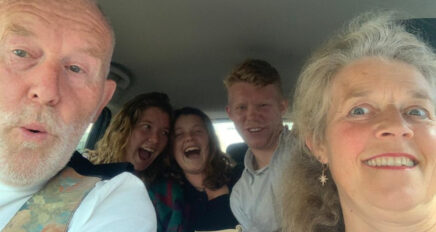Planning for a safe, positive and powerful birth.
Medical technology allows pregnancies to be more closely monitored than ever before. Although it brings parents reassurance and sometimes identifies the need for essential lifesaving care, it also comes at a price. Screenings offer a certain kind of knowledge, a knowledge that must, I believe, be complemented with birth preparation that builds confidence in a woman's own capacity to have a safe, positive and powerful birth. Babies have been born safely for millenia, in all kinds of circumstances. Birth is, after all, a natural and not a medical event.
In a culture where medicalised birth is the norm, it is easy to hope for the best and unwittingly hand over the responsibility to others. When speaking of a ‘natural birth’ some consider any vaginal delivery to be natural, regardless of whether there was an induction, an epidural or another intervention. Others consider childbirth to be natural only when there is no medical intervention at all. A low-risk mother will have the option to attempt to have a ‘natural unmedicated birth’ whilst other options will need to be discussed with high-risk mums. Although there is no right or ‘wrong’ birth, it is a topic well worth exploring beforehand.
Each couple will have their own ideas of what a safe, positive and powerful birth might be. In another blog I write about how our own birth experience can influence our confidence and belief in ourselves in many areas of our lives. ( See blog Giving birth to the mother you want to be).

Five tips for a safe, positive and powerful birth
1. Inner Knowledge and preparation is powerful. The more you know about the physiological, psychological and emotional aspects of labour the better. When facing the unknown it is reassuring to know that most women encounter predictable crisis moments when they loose confidence and need support. You are never alone! ( See my two part blog Being With Pain in Childbirth Part One and Part Two).
2. Writing a birth plan with a healthcare professional is one way to spell out your preferences and to focus on significant choices that you may need to make at each stage. You might even be able to predict what you will find hard. Even though some labours just don't go to plan, by choosing to stay connected and in touch with your baby, you are still having what I believe to be a safe, positive and powerful birth. With good support you will make the best decisions in the moment. Requesting a mobile rather than a static fetal heart monitor is one example of maintaining agency in a medicalised environment. Even if interventions are needed do your best to stay connected with yourself, your partner and most importantly with your baby.
3. Stay as active as possible before the onset and during labour. Knowing your body and how it likes to stretch and be eased will help both your mind and body. Notice what helps you feel loved and seen by your partner? What will give you a boost when you need it? Your own body sensations can be very anchoring throughout labour. Dont avoid them!!
4. “ Just say YES”! To the sensations and emotions… Birth is a marathon and although many couples feel shy about bringing someone else into their circle, a specially trained birthing partner or Doula is invaluable. Notice old habits that creep in like ‘I don't want to bother anyone’, “ I don't want to be seen, I’d be embarrassed…" or "I have to do it all myself." The support is for you and your baby. Your baby senses how much easier it is when YOU can learn to receive.
5. Last but not least remember that from the moment of conception you are in relationship with a human being that instinctively knows how to birth! Babies rehearse their moves in the womb and have a whole-bodied sense of how to birth! We are not as in control as we may like to think. It is their birthday after all, their ‘opening night’, their first performance!! Did you know that babies actually initiate labour?
In Pregnancy and pre-natal sessions, I support parents to build confidence in their bodies and understand the babies' perspective. Building trust, self-compassion and communication with our babies as well as with any others we intend to birth with, are the cornerstones for a safe, positive and powerful birth.











